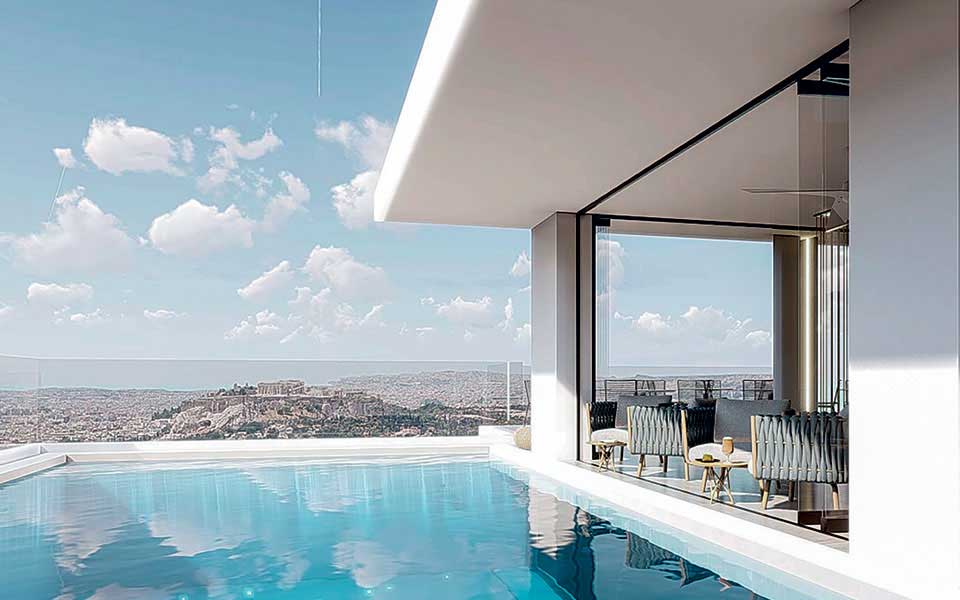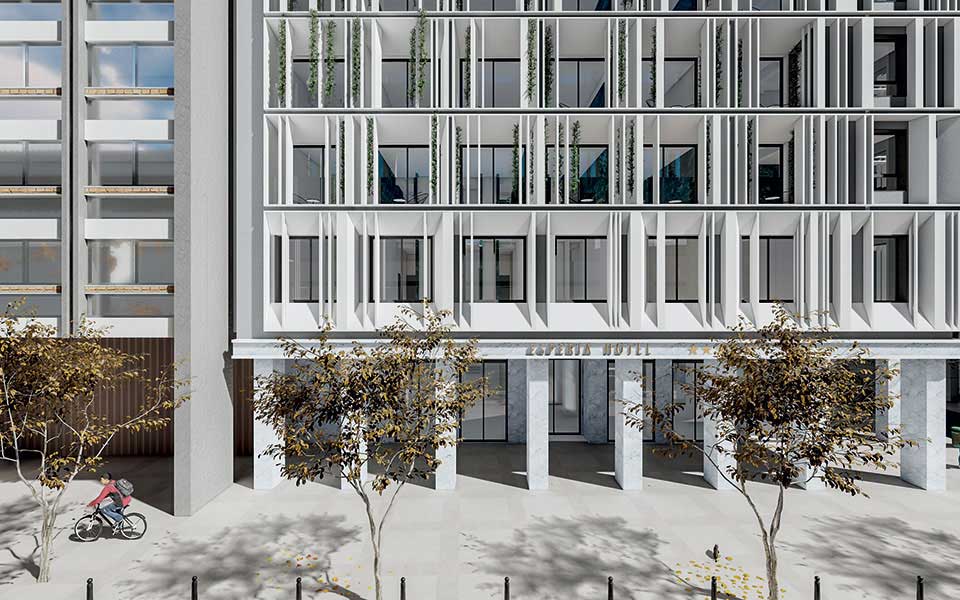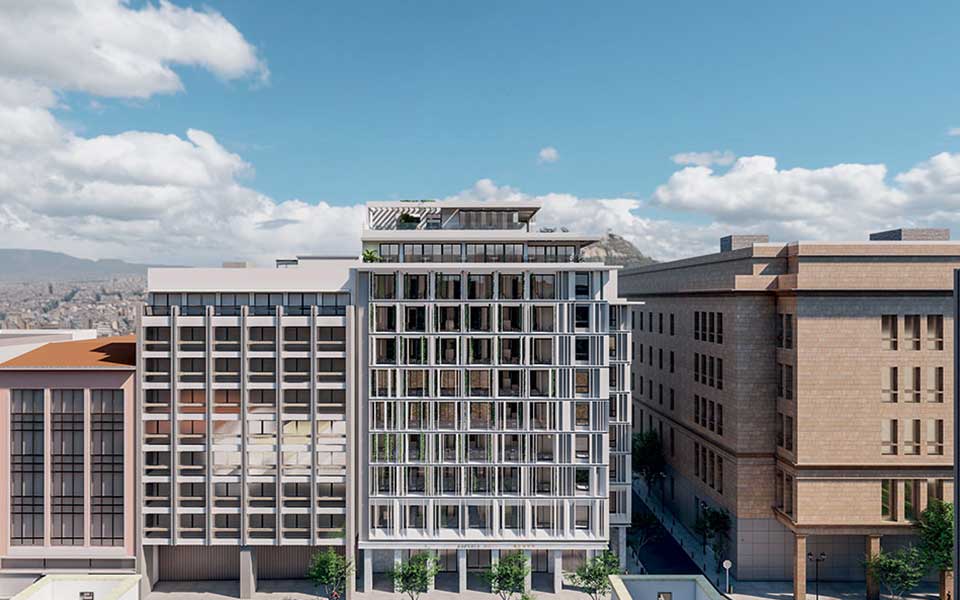This year marks ten years since the Esperia – once one of Athens’ most recognizable hotels – suspended its operations.
The shuttering of this landmark hotel, together with the 2012 fire that damaged the historic Attikon theater just across the street (which remains an open wound), had come to symbolize the decline of Stadiou Street, one of Athens’ most important downtown thoroughfares just a short walk from Syntagma Square.
Seen from this perspective, the announcement made by the well-known Israeli group Fattal Hotels that it would be leasing the Esperia came to bolster the recent rising tide of optimism regarding the center of Athens.

The unveiling of the architectural plans for the property’s renovation has given a boost to those hoping to see progress in this key location. The plans drawn up by Tsolakis Architects (the architectural firm that won the tender), reflect the ambitions of a serious and reliable player in the international hotel market.
The design involves the dismantling of the familiar, minimalist exterior of the old Esperia (built in 1963, and named after the popular Espero cinema nearby) prompting some reservations. However this is where the dimension of branding enters the picture, and the desire on the part of the new hotel operators to define a new era architecturally and create fresh images.
Architect Giorgos Tsolakis explains that “in making use of the elements found on the existing exterior,” – that is, the grid formed by the balconies, and the horizontal elements that connect the rooms together – “we propose the creation of a ‘filter’ that will accentuate the unique architectural elements of the building.”

The plan constitutes a reinterpretation of the existing grid system, through the use of pronounced horizontal lines between each floor, while vertical architectural elements will be installed that differ from floor to floor. These vertical elements will be denser on the lower stories, so as to protect visitors from the din of the street, while towards the higher levels they will become fewer and farther between, allowing for unobstructed views of the city and the Acropolis.
“We’re also adding a ‘green filter’ to the exterior; what we are proposing is the integration of a green wall system with vertical plants that will alternate with the other vertical elements of the facade,” the architect says.
Work is expected to begin as soon as possible, with the first half of 2021 having been set as the target date for the reopening of the hotel.












